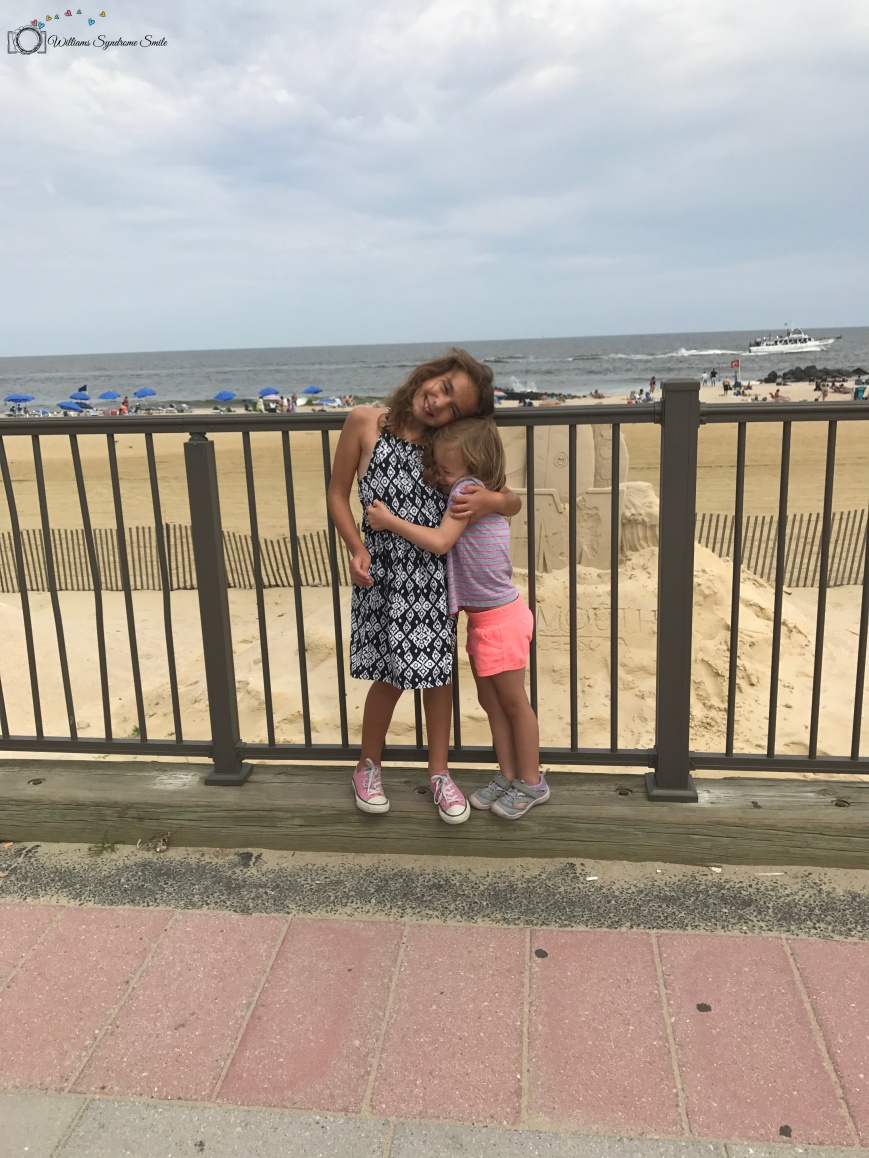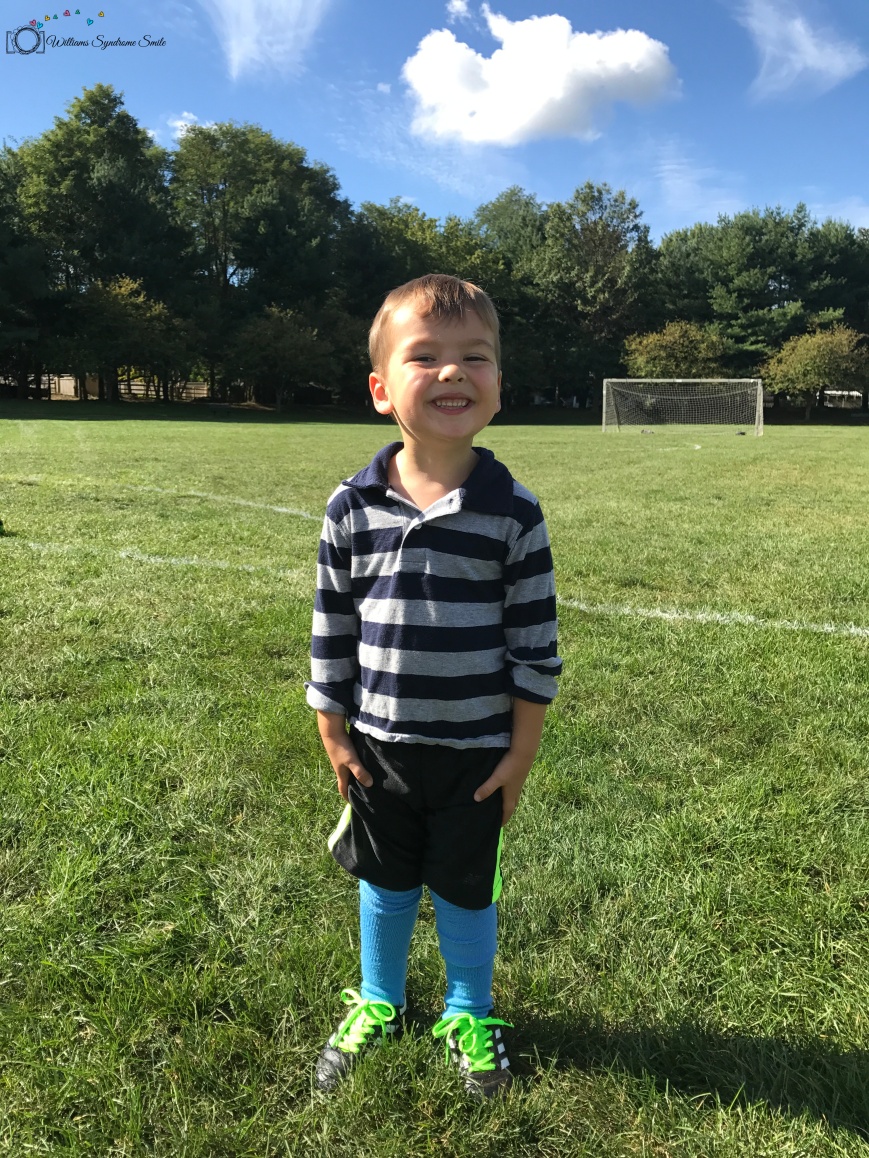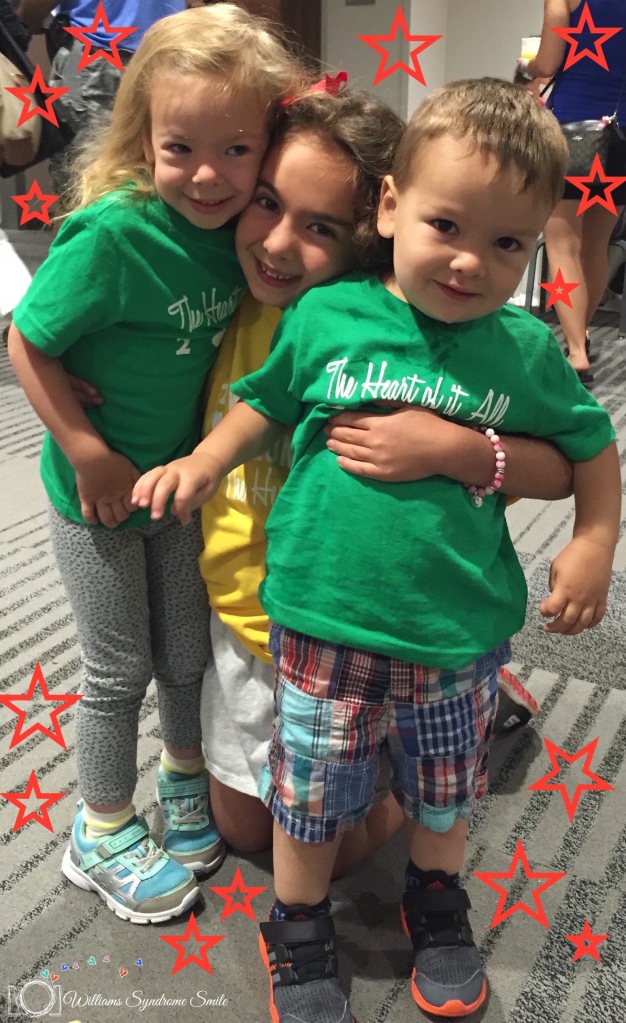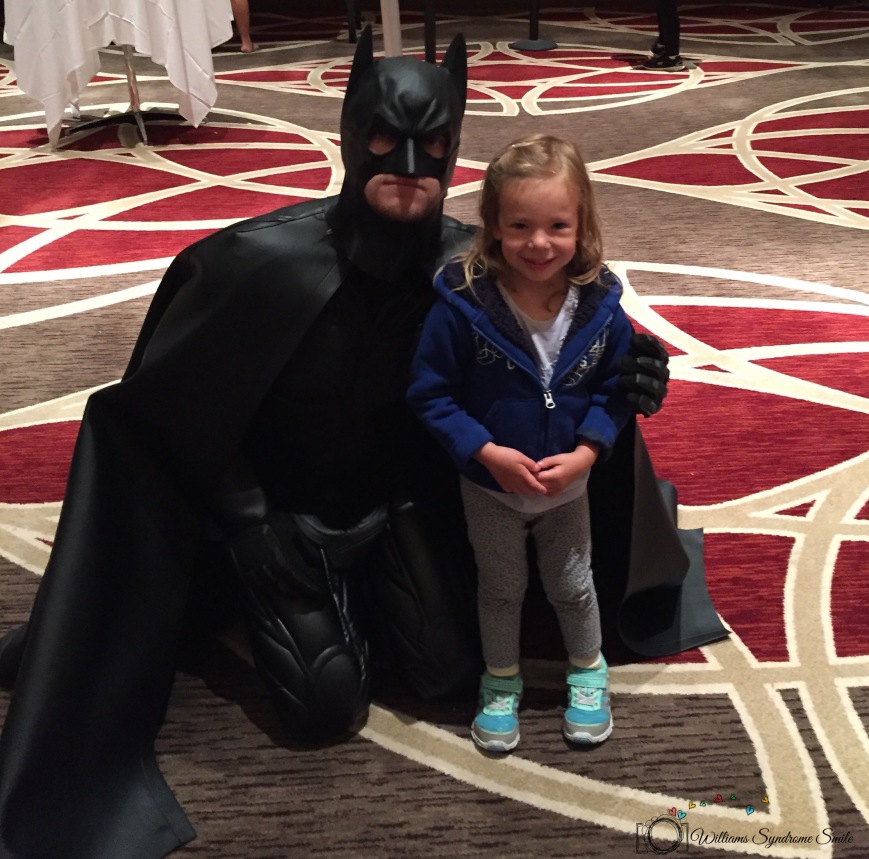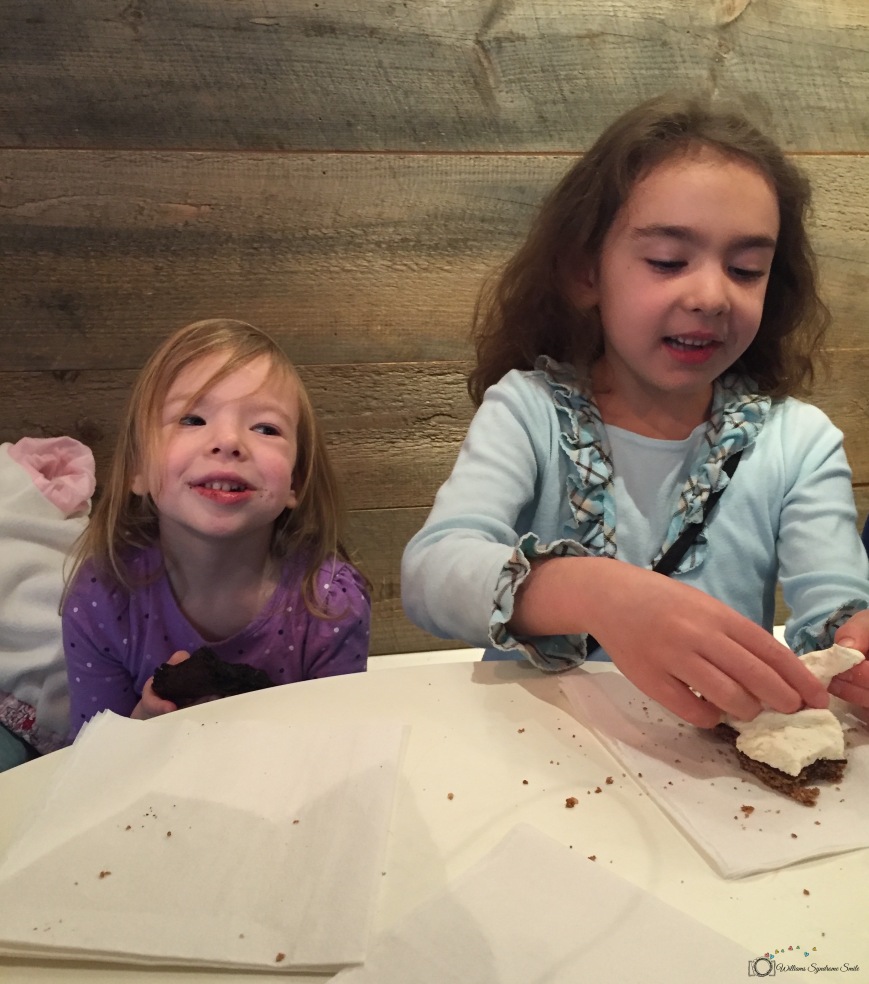
Emmy is six years old! She was only one year old when I started this blog. Hard to believe!
Emmy is feisty, fearless, and persistent. Those qualities have remained since she was born. She actually broke her arm at the end of the last school year because she was climbing up a structure on the playground during recess and fell at the very top. (I almost passed out when the school called me. But so far, it looks like she’s healing beautifully.) After her arm was out of the sling, we walked by the school playground and she casually asked if she could climb that structure again.
“That one??” I asked. “You fell from that one!”
She smiled and started climbing. No fear whatsoever.
When we were trying to plan her activities for this year, she asked if she could take karate classes. I wasn’t sure about karate… Let’s just say that it’s not really my speed. And a friend said that it really tests your balance, so I was concerned that Emmy would have an especially tough time.
When we showed up early for our trial class, we got a chance to see the older kids sparring. Emmy sat on my lap while we watched the kids really going at each other. My eyes nearly bugged out of my head. I was going to sign up my little darling for this? I figured that after watching the sparring session, she wouldn’t want to do it anymore. Clearly I do not know my daughter!
“Are you sure you want to do this?” I asked nervously.
“Yes. I love it,” she replied, smiling.
So now Emmy takes two karate classes a week. She was right. She loves it.
It’s interesting to see the activities that really capture her interest. She’s tried dance, gymnastics, piano, t-ball, yoga, and soccer. And while she enjoys them, she will drop everything for karate and swimming.
She also loves arts and crafts, but I fear that this interest is really about being destructive. One thing we still struggle with it that Emmy likes to tear things about. I know that this can be common for kids with Williams syndrome. But for a neat person like me, there are some growing pains associated with this one.
For example, Emmy loves to use scissors. And I trusted her with scissors because she does a solid job cutting paper and has never cut her skin. But one day I popped my head into the study to see that she found a bunch of her nice bracelets in a jewelry box and cut them up. Ughhhhh.
Or she’ll take a bottle of glue and, at first, she’ll be purposeful about where she puts it. And then, it’s all over…
Or, we were watching Charlotte’s soccer game the other day, and I gave Emmy a piece of paper and pencil to keep her busy on the sidelines. The paper had interesting designs on it that you could trace. She turned it over to the back and started poking holes in it.
I can tell that she gets a thrill out of being destructive.
But I’m being nit picky here. Most of the time, Emmy is a pleasure. Her personality is awesome. She’s usually in a good mood and smiley. When she does get upset, there is always a legitimate reason behind it. I don’t think she’s ever thrown a tantrum “just because.”
Emmy still loves Halloween. She talks about Halloween from January through December. She’s actually brought a new joy of Halloween to everyone in the family. I wasn’t majorly into Halloween when I was younger. I liked the candy, but that was about it. I was much more of a Christmas kid.
But now, Halloween is such a happening in our house. We have a store nearby called Spirit Halloween with zombies and werewolves that pop out when you walk in. When we went on our first Spirit Halloween visit this fall, it was practically a sacred event. I even took a video of us walking through the hallowed doors and getting scared by the fake spiders that jump out. I think Charlotte and Theo also appreciate Halloween even more because of Emmy. When we drive by houses with Halloween decorations, everyone in the car gets especially excited to point them out to her.
While Emmy’s personality is lovely and she’s a joy to be around, my heart still hurts as I watch her struggle in different areas. She’s repeating Kindergarten this year. She actually entered Kindergarten on the younger side, at five years old. And she immediately stood out in every class picture because she is so tiny. She loved school last year and never complained, but it was tough for her. Once school started, everyone was off to the races. And while other kids progressed quickly onto writing sentences, we were still practicing how to write Emmy’s name. Thankfully, this year, she’s holding her own quite nicely. School only started a few weeks ago, but she’s with the pack much more than last year. I’ve already seen significant gains in her progress.
Emmy has a new phrase: “A little help.” The first time I heard her say it was when she was riding her bicycle with training wheels and got stuck on a dip in the pavement. She continued to push the pedals around and around, but they just kept grinding. She is a persistent kid, so she tried desperately to get herself out of the rut. Finally, she looked my way, flashed her adorable smile, and asked, “A little help?” I’ve heard her say it a few times now. It’s very gentle; very sweet.
The truth about Emmy is that she doesn’t WANT help. She wants to do everything herself. But sometimes, she NEEDS a little help. I think this is a misperception about people with special needs. I’ve heard it said that people with special needs expect things to be handed to them — or that they needlessly demand help with every little thing. I’ve found it’s just the opposite. Emmy doesn’t WANT the help. She would love to be able to do everything herself. But sometimes, she NEEDS a little support to make it over the finish line.
When she does struggle, it’s hard to watch. Every morning, as she reaches for the banister to walk down the stairs, her hand shakes slightly with an intention tremor. I think her brain is still getting in sync with her nervous system early in the morning because it’s most obvious at that time and then subsides as the day goes along. Other people would probably not even notice the shaking. It’s so slight. But I feel it in my heart. It’s that tiny, little shake that is the give away. Things are harder for her, even though she never complains.
Emmy just adores her brother, Theo. If she could smother him with kisses all day, she would. He mostly runs away from her smothering, but they have a ton of fun together. They’re little buddies.
And Emmy looks up to Charlotte, who has very much adopted the big sister role for her younger siblings. Charlotte is a caretaker, but I’m conscious of the fact that I don’t want to put too much pressure on her. We had a disagreement over the summer where I asked her to watch Emmy at camp, and she pulled the reigns too tightly around Emmy’s fun. So we had to talk about what it means to “keep an eye on your sister” versus chasing Emmy around and telling her to not participate in activities because she might get hurt. But Charlotte has always been mature and, at eight years old, she was able to embrace that concept a bit better once we talked about it.
As time moves along, we all find our roles. It’s interesting to see them sway and shift as school, activities, and friends circle around our lives.
My goal this year is to move towards Minimalism. You know these guys?: The Minimalists
I’m very, very good at acquiring STUFF. It’s somewhat of a speciality. So I’m dipping my toe in the pond of minimalism, starting with The Minimalists and everyone’s favorite declutterer, Peter Walsh. As I look over all of my STUFF, I realize that this needs to be a major overhaul. Wish me luck. 🙂
